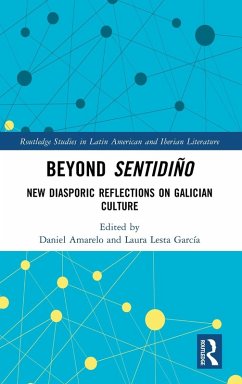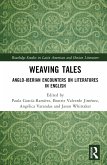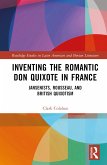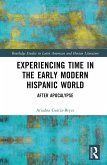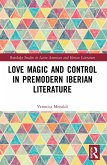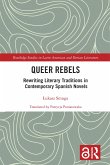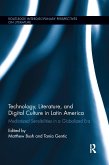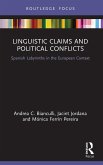Beyond Sentidiño: New Diasporic Reflections on Galician Culture is an interdisciplinary study of Galician literature, languages, and cultures. The volume brings together essays from fields across the humanities and social sciences to foster a discussion that incorporates new concepts that, as of now, are not part of the imaginary of Galiza: gentrification, language imperialism, youth unemployment, deruralization and deindustrialization, media control, technocapitalism, and gender and sexual normativity. It also serves to moderate a conversation about how independence from the political, material, and sociocultural networks of autonomic Galiza allows diasporic scholars to think of Galician culture in a de-essentializing manner. Working and living in the diaspora provides a lens through which to unmask the hegemonic neocolonial and neoliberal representation and reproduction of Galicianness promoted by different social, political, and mediatic powers.
"Framed as a collective reflection on the challenges and opportunities of rethinking Galician culture for a post-2008, post-Covid, rapidly digitalizing world, this ambitious essay collection will transform our understanding of contemporary Galicianness. The authors, all writing from beyond Galicia itself, critically embrace the identity of 'displaced subjects' to challenge the contemporary supremacy of sentidiño, a distinctively Galician form of 'common sense', identified as a key tool in the ongoing containment of Galicianness to make it compatible with the demands of the neoliberal Spanish state. Drawing on an innovative, multidisciplinary corpus and diverse theoretical frameworks, the essays drive us beyond the familiar, exploring fresh dimensions of contemporary Galician culture that leave us in no doubt of its creative, outward-looking, transformative potential. I'm immensely excited about this collection, which promises to revolutionise Galicia's place in both teaching and research."
Kirsty Hooper, Professor of Hispanic Studies, University of Warwick, UK
"Beyond sentidiño interrogates collectively some of the most significant cultural issues in Galiza today. Bringing to the fore ecocentric, queer and other counterhegemonic perspectives, the essays in this volume testify to the vibrancy of Galician Studies as a transdiscipline, a unique vantage point from which to illuminate the many facets of resistant cultural practice in (relation to) Galiza, which remains - to this day - a contested space of the Iberian, Hispanic and Lusophone spheres."
Helena Miguélez-Carballeira, Professor in Hispanic Studies, Prifysgol Bangor/Bangor University, UK
Kirsty Hooper, Professor of Hispanic Studies, University of Warwick, UK
"Beyond sentidiño interrogates collectively some of the most significant cultural issues in Galiza today. Bringing to the fore ecocentric, queer and other counterhegemonic perspectives, the essays in this volume testify to the vibrancy of Galician Studies as a transdiscipline, a unique vantage point from which to illuminate the many facets of resistant cultural practice in (relation to) Galiza, which remains - to this day - a contested space of the Iberian, Hispanic and Lusophone spheres."
Helena Miguélez-Carballeira, Professor in Hispanic Studies, Prifysgol Bangor/Bangor University, UK

